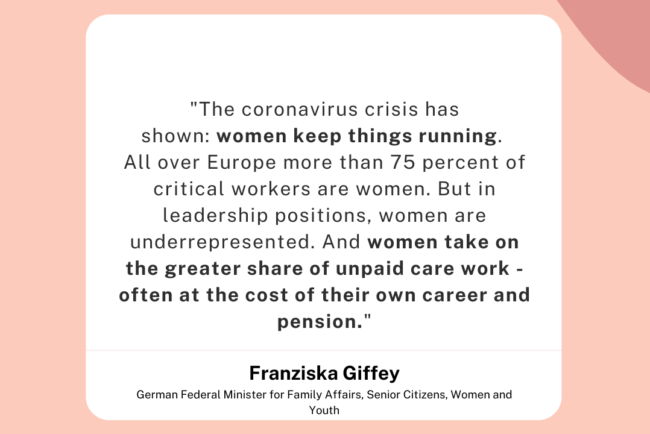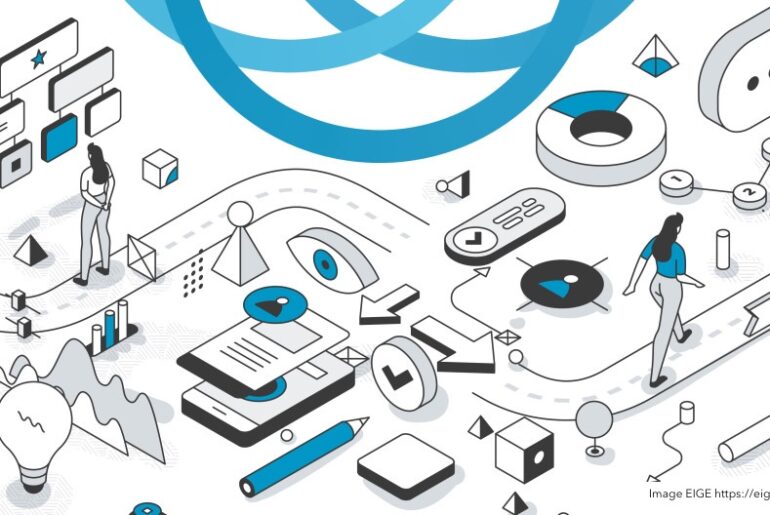Meeting of the EPSCO Council
15.10.20
13 October 2020: The Employment, Social Policy and Health Consumer affairs Council of the EU (EPSCO) held a virtual debate on the equal participation of women and men in the labour market. They discussed ways to further promote gender equality and combat the segregation of women and men in the labour market.

MMM welcomed the statement made by Dr. Franziska Giffey, German Federal Minister for Family Affairs, Senior Citizens, Women and Youth. She stated that “the coronavirus crisis has shown women keep things running. All over Europe more than 75 percent of critical workers are women. But in leadership positions, women are underrepresented. And women take on the greater share of unpaid care work – often at the cost of their own career and pension”.
Indeed, unpaid care work, mainly undertaken by 𝗺𝗼𝘁𝗵𝗲𝗿𝘀, although crucial for society, hinders their career advancement and reinforces the gender pay gap in pay and pensions.
Before the Covid- 19 crisis, parents, in particular mothers, were already facing difficulties raising their children under proper conditions, often juggling between their educational responsibilities and their need to make a living. In the context of the pandemic and imposed lockdown, the demand for unpaid care work and informal education has increased and reinforced pre-existing gender inequalities in sharing this essential work.
The fact that women take a larger share of essential care work, has not sufficiently been considered in the analysis of the gender pay gap and when proposing measures to tackle it.
Make Mothers Matter is convinced that gender equality will never be achieved until unpaid care work is recognised, reduced, and redistributed.
Envisioning care as a common thread to global crises
29.07.24
UN New York - Our virtual HLPF side-event brought together experts to shed light on how the various global crises we face (in particular climate change and other environmental crises,
We call for multi-stakeholder approach to recognise and support unpaid care work
21.07.24
UN New York - Participating in the meeting of the UN Economic and Social Council (ECOSOC) on care and support systems, MMM reaffirmed the principle of co-responsibility, which should underpin
The New EU Gender Equality Roadmap : A Call for Inclusion of Mothers
04.03.25
The European Commission’s initiative on a new Gender Equality Roadmap post-2025, marks a significant step forward in addressing gender disparities across the European Union. Make Mothers Matter (MMM








